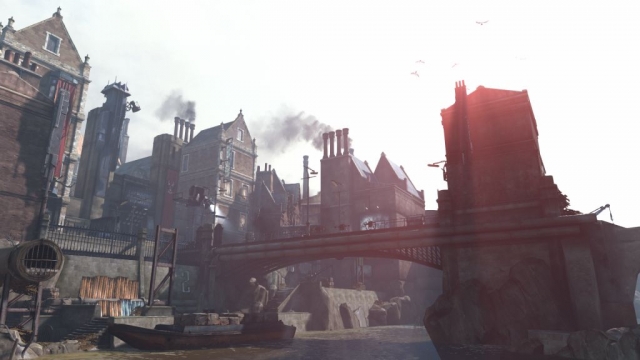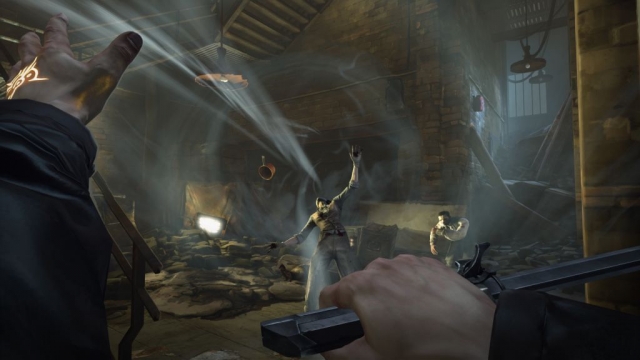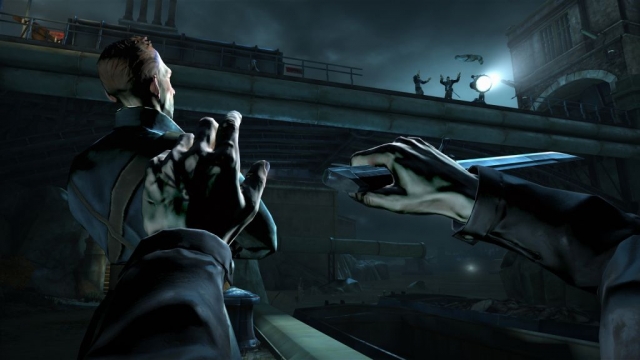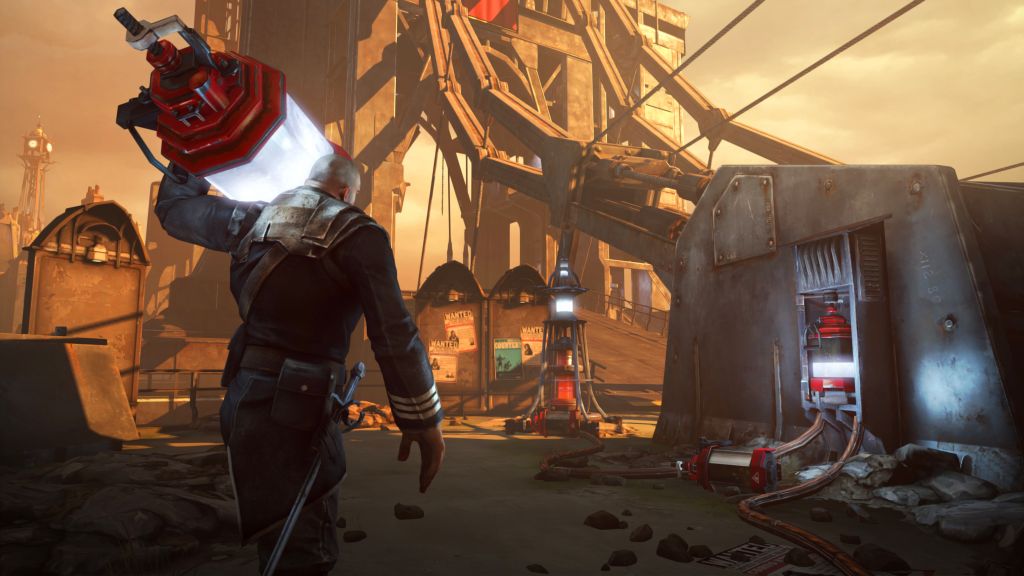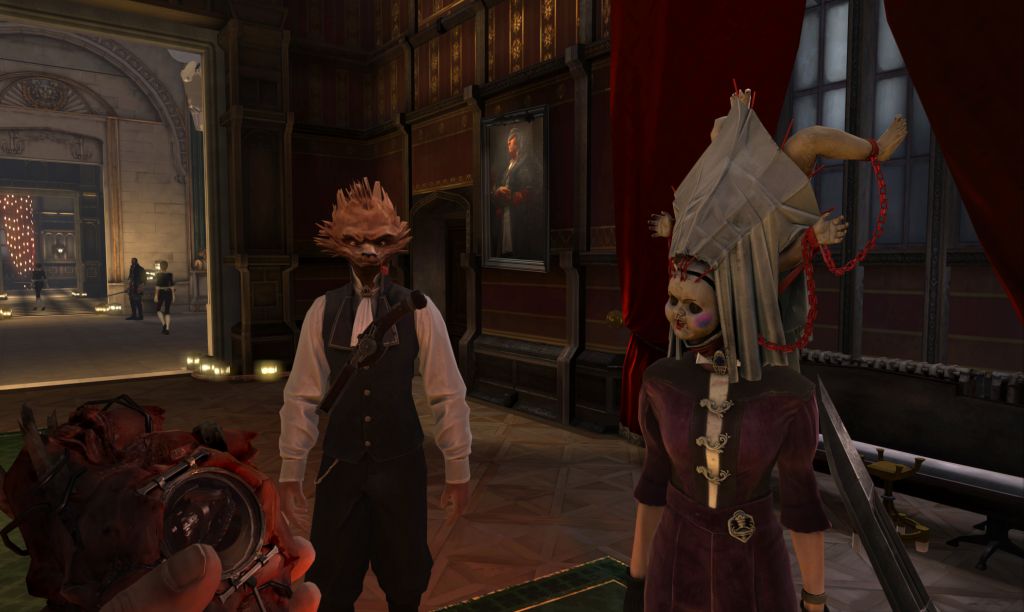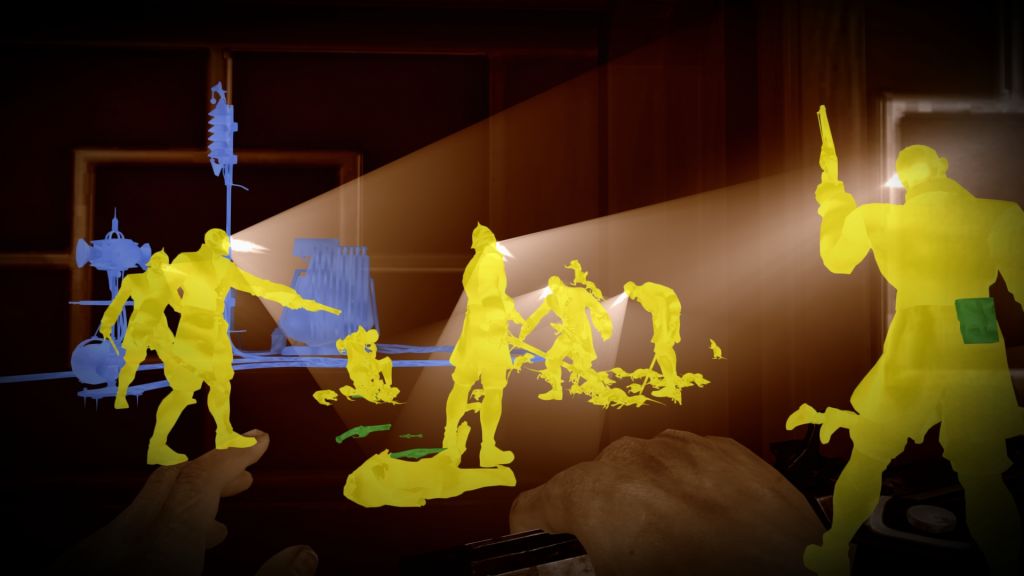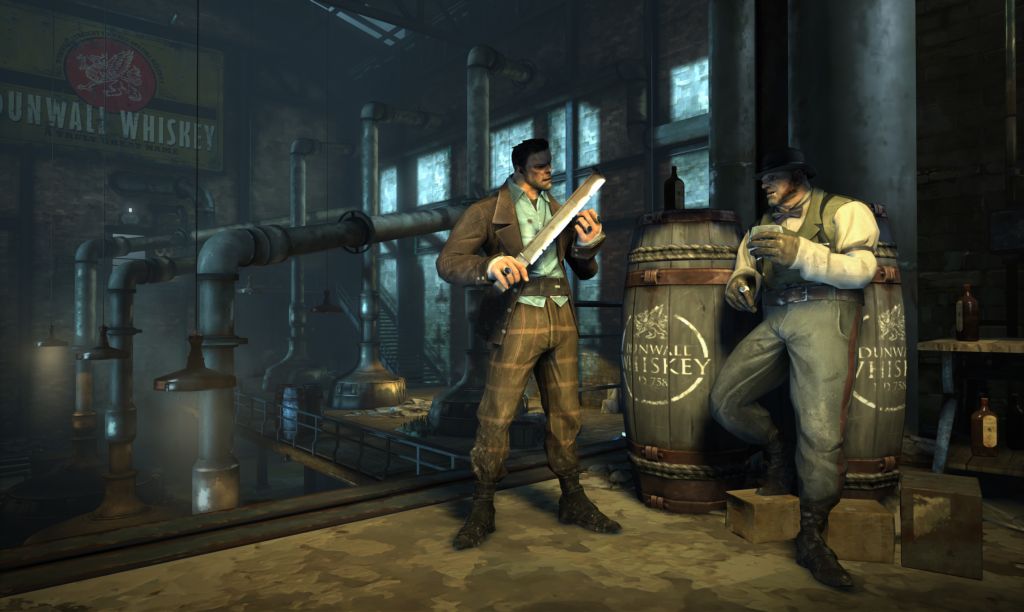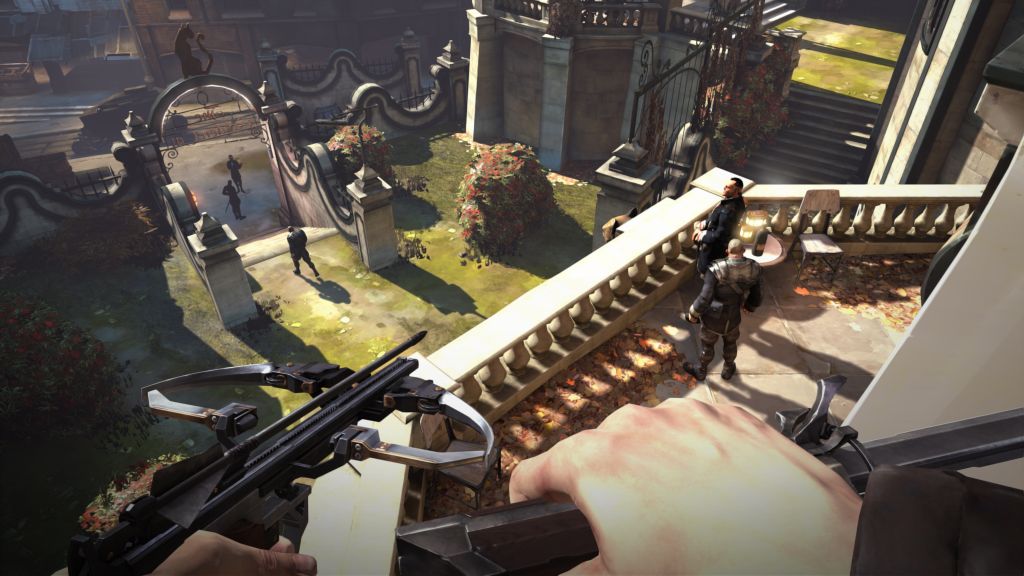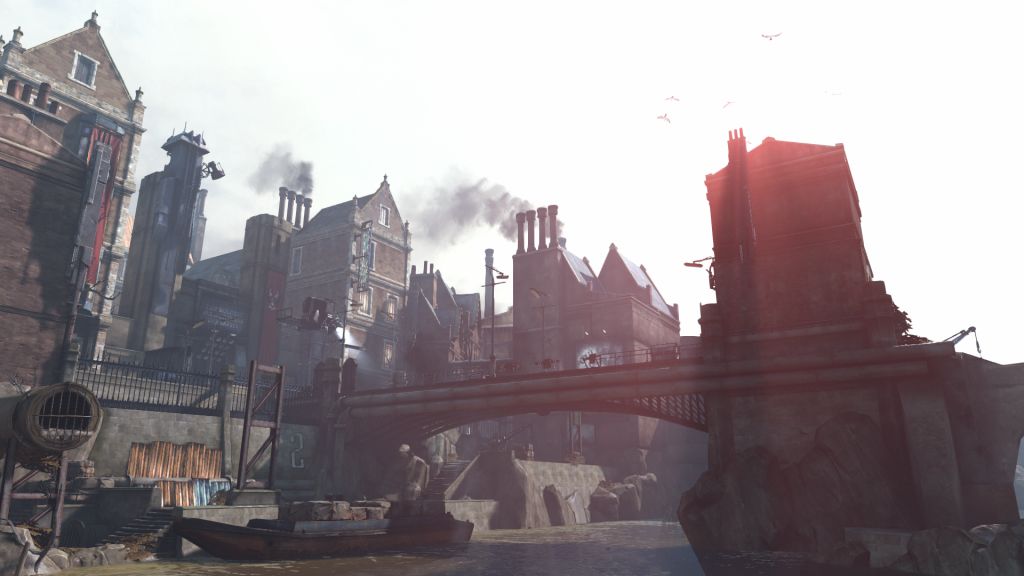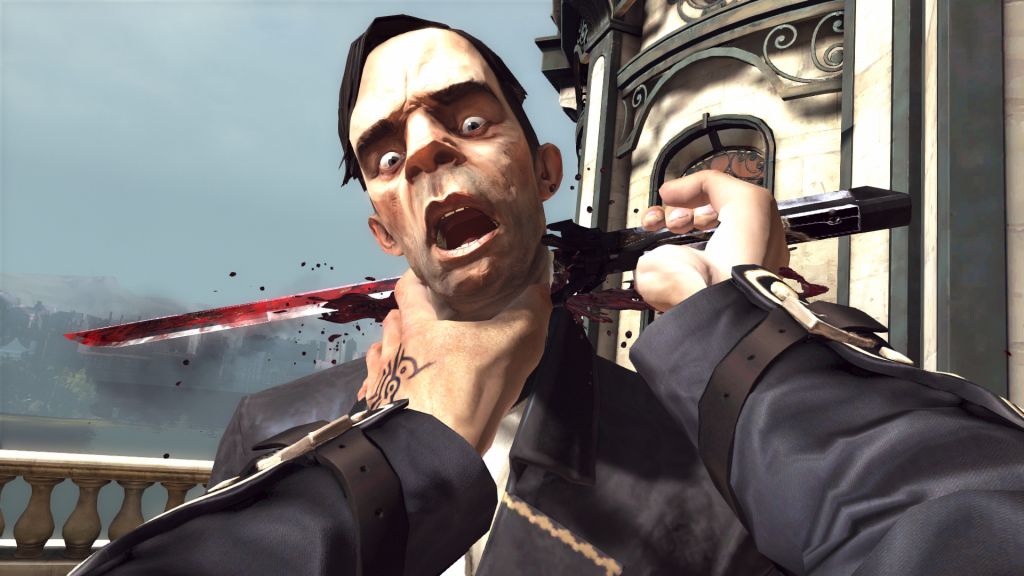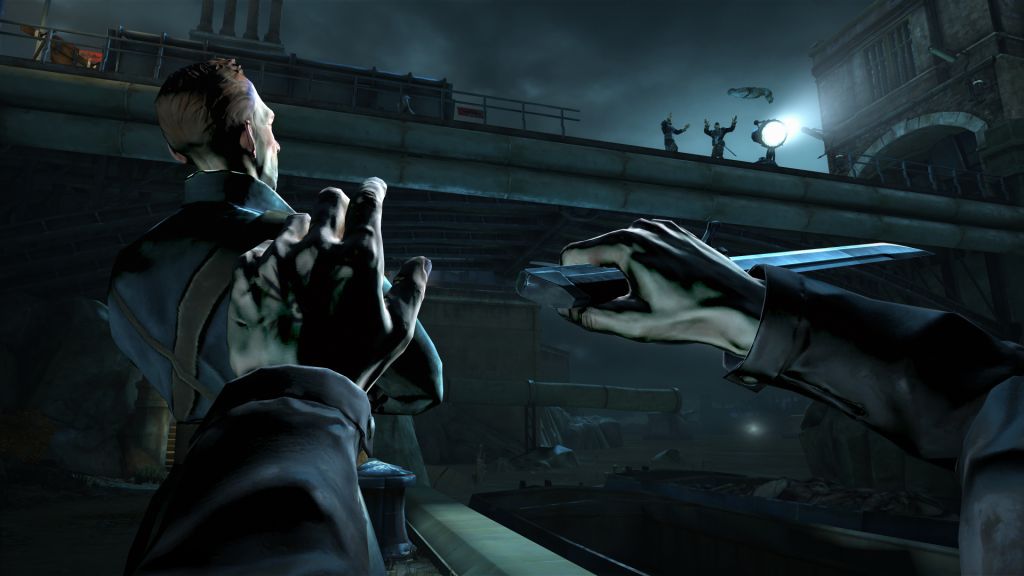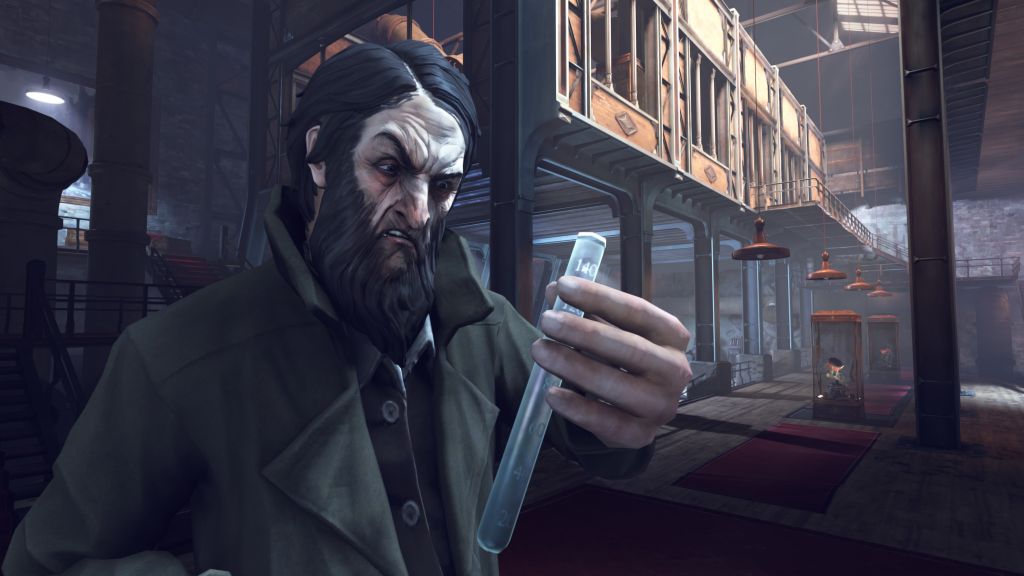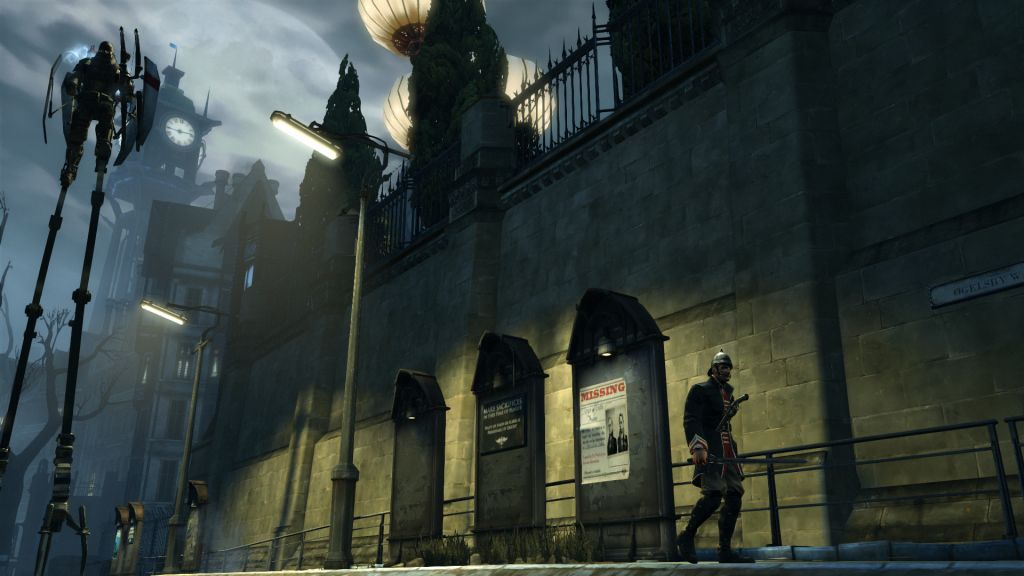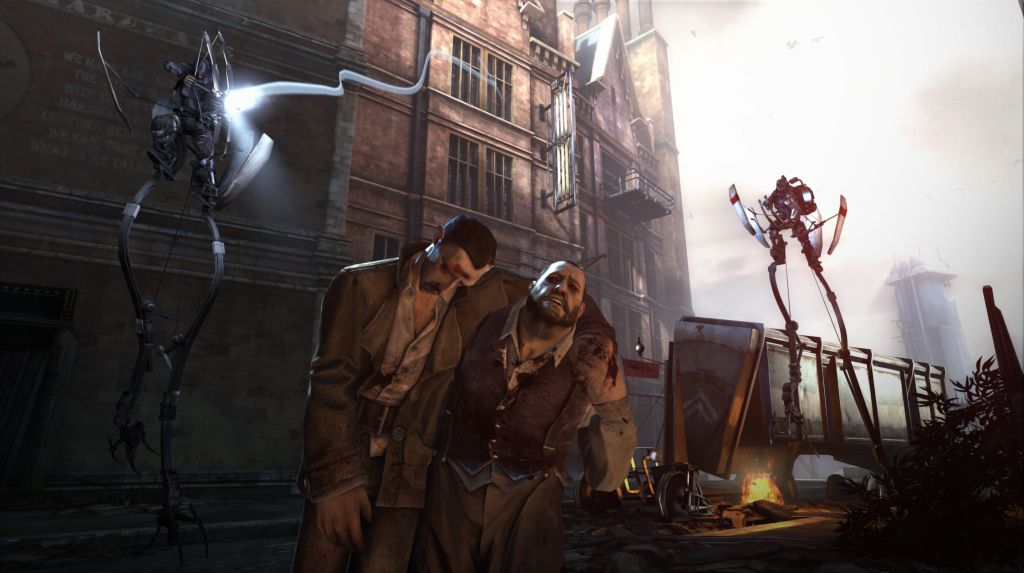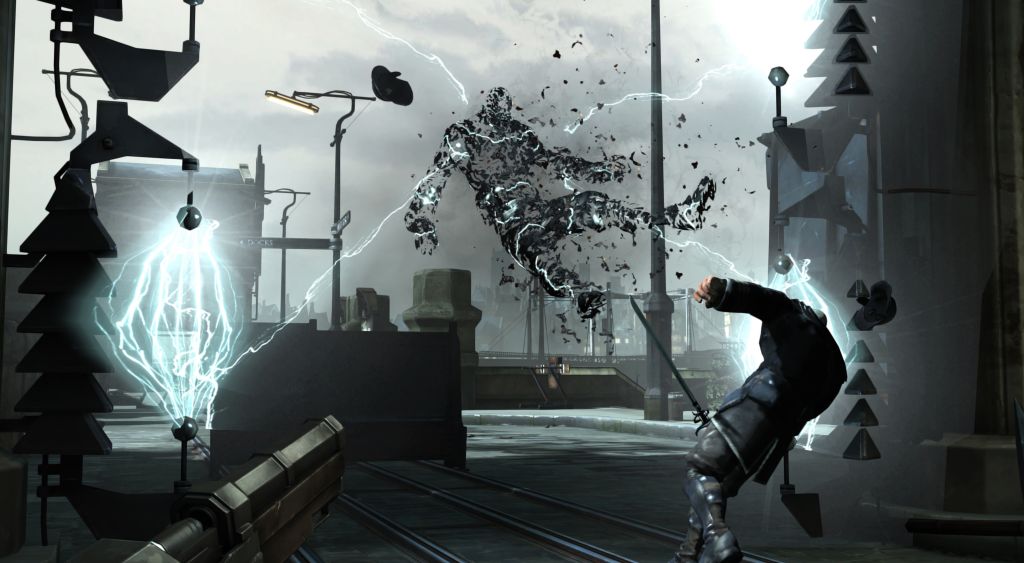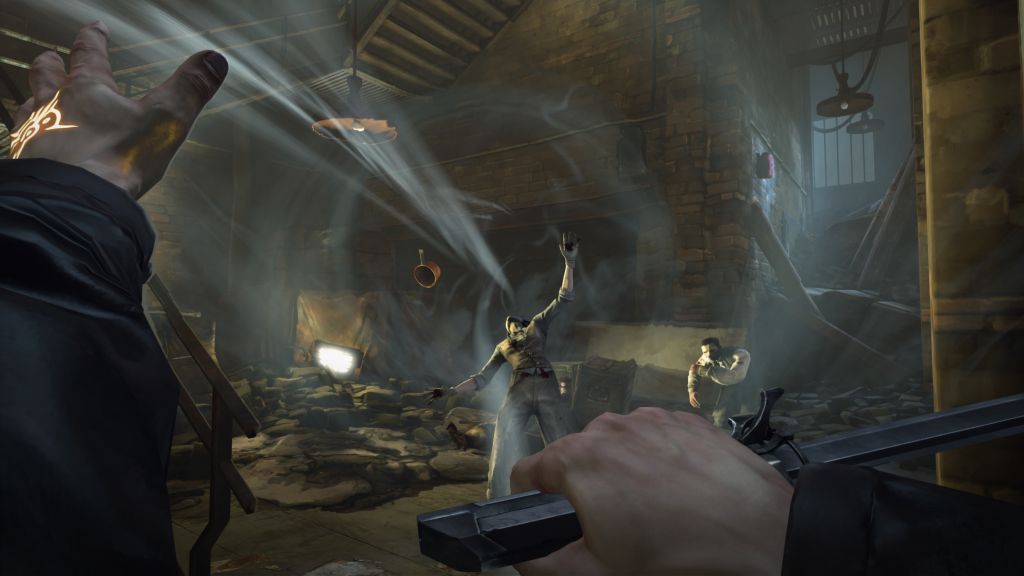Dishonored

I described Dishonored to somebody a few days ago as “Thief, if Garrett could fight his way out of a wet paper bag.” Now that I’ve cleared the game, I more or less have to stick with that description. Dishonored has the feel of that particular kind of first-person game, the open-ended choice-based adventure, and it’s hard not to compare it to Thief, Deus Ex, and Hitman. It’s very good about shaping itself around you, and in turn, being shaped by you.
Dishonored is set in the city of Dunwall, which has been dealing with a deadly plague. The infection has killed a large number of the populace, resulting in entire neighborhoods being condemned or abandoned, and the city’s Empress is scrambling to find help or a cure. As her royal bodyguard, Corvo, you come back to the castle from abroad and are right in time to get framed for the Empress’s assassination. Six months later, on the eve of your execution, a different group of conspirators break you out of prison and set you on a series of missions to depose the assassins and put the Empress’s daughter Emily up on the throne. At the same time, a mysterious entity called the Outsider comes to Corvo in a dream, granting him supernatural powers, apparently because the Outsider’s curious as to what will happen.
Dunwall is probably the most remarkable thing about Dishonored. It’s based heavily on 1940s London with a dash of Venice, half wreckage, half canals, and all slums, with its nobility throwing extravagant parties maybe half a block away from decaying tenements and dying peasantry. The city has access to a high level of bizarre technology due to a series of recent inventions, which means you’re dueling with sabers one second and figuring out a way past an invisible force field the next. It has a very coherent sense of place, fleshed out through overheard conversations and detailed in any of a few hundred books you’ll find lying around, and it’s one of the many ways in which Dishonored encourages you to explore.
Each mission in Dishonored is split into a discreet chunk of Dunwall, and it’s your job to figure out how to pull off the job at hand. Dunwall is a city on the brink of complete ruin, and the actions you take can contribute to that. If you leave the area waist-deep in corpses, the plague spreads, the guards become more numerous and paranoid, and when you finally do find Emily, you’ll set a bad example for her. Conversely, it’s entirely possible to get through the entire game without ever directly killing anyone at all, or with a bare minimum of bloodshed, and that keeps Dunwall moving on a relatively even keel.
The first supernatural power you get is called Blink, which is a short-ranged teleport spell that moves Corvo in a straight line forward. It can be used to bridge gaps, break falls, add height to jumps, or reach parts of a level that would otherwise be inaccessible. Alternatively, you can use it to quietly approach enemies from behind, as an escape tool, or to close the distance on an opponent and gut him. It’s one of the most versatile, entertaining abilities I’ve ever seen in a first-person game, and it really adds a lot to the basic gameplay.
In fact, the various supernatural powers can, when obtained, reduce the game to a point where it feels like you’re cheating. Powers can be purchased and upgraded through the expenditure of Runes, which are found hidden throughout each level or given as rewards for various side missions. They include the ability to possess rats or fish, letting you crawl through ducts and small tunnels, or even other human beings. You can vastly slow or even stop time for short periods, throw around enemies with gusts of wind, or summon crowds of rats to devour them. At the start of the game, you’re one guy with a sword, a crossbow, and a slight supernatural edge, but by the end of it, with as many powers as you can access, you’re a monster lurking in the shadows.
Then again, maybe you’re not. Dishonored‘s missions are so manipulable that it really is a different game for everyone who plays it. I went through it as a stealth character, avoiding or knocking out the Dunwall city guard when I could, mostly interested in getting the job done with a minimum of bloodshed and fuss. I left a lot of guys in unconscious heaps on the ground, knocked out by sleeper holds or drug-tipped crossbow bolts, but I didn’t kill anyone who didn’t have it coming. Playing that way, where I was encouraging myself to find hidden ways into and around each building and environment, it was a slow and ultimately rewarding process, and my supernatural powers were chiefly used for evasion or transportation. I never bothered picking up the swarm-of-rats ability at all.
I’ve heard of other players who’ve loaded up on offensive powers and upgrades and murdered their way through each stage, killing everyone they saw with either brute efficiency or clever sadism. You can rewire enemies’ machines to attack them, turning their turrets or defense fields against them, or possess guardsmen to make them leap to their deaths or shoot one another. You can bring out crowds of plague-ridden rats to attack an opponent and devour his body completely, leaving no trace for his friends to find, or purchase a power that causes any corpse you create to instantly burn to fine ash.
As a result, you’re probably just going to have to play Dishonored for yourself. If you decide to treat it like a particularly Victorian kind of first-person shooter, it’s over and done with in four or five hours, and you’ll probably condemn Dunwall to a new age of darkness while you’re at it. If you play it as a stealth game, it takes much longer and you arguably get much more out of the experience. The game also rewards a few replays due to the sheer breadth of options you have in each level, and several of its achievements reward you for being clever or non-lethal, or for solving a problem in a nonstandard way.
There’s a particular kind of first-person adventure game, where it doesn’t feel like a game you play so much as a place you visit, and Dishonored fits neatly into that category. A lot of imagination, work, and care has gone into it, and your best bet is to slow down, explore it, and see what you can find. It’s one of the better games this year, and will probably still be discussed ten or twenty years from now.
Reviewed By: Thomas Wilde
Publisher: Bethesda Softworks
Rating: 95%
——————————————————————————–
This review is based on the PlayStation 3 version of Dishonored provided by Bethesda Softworks.
 Game Over Online
Game Over Online